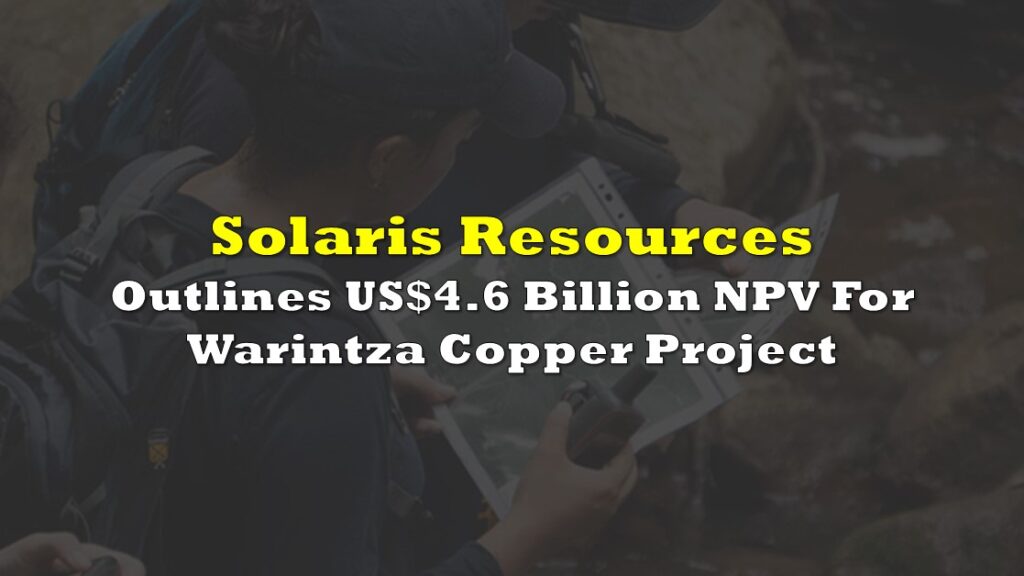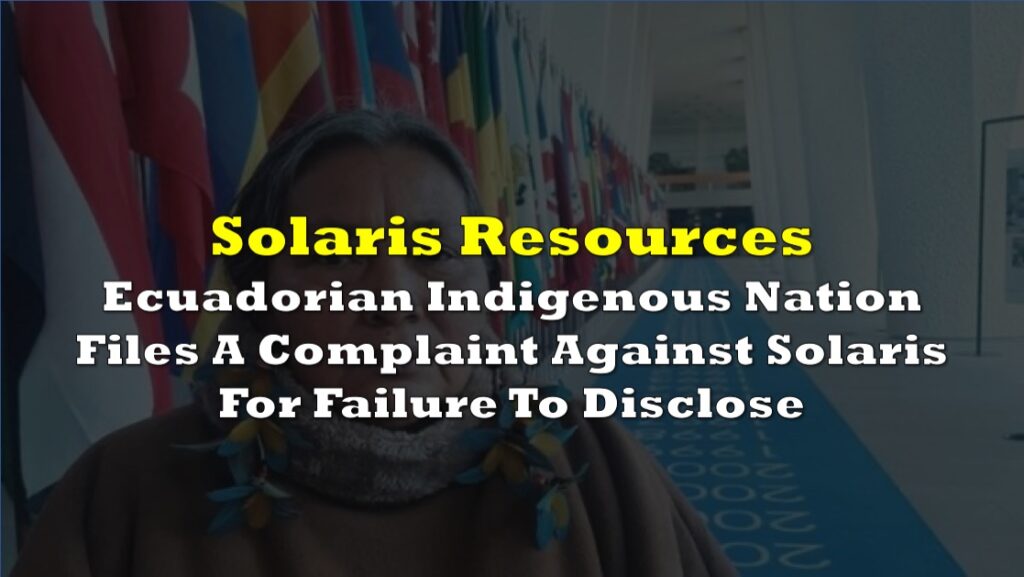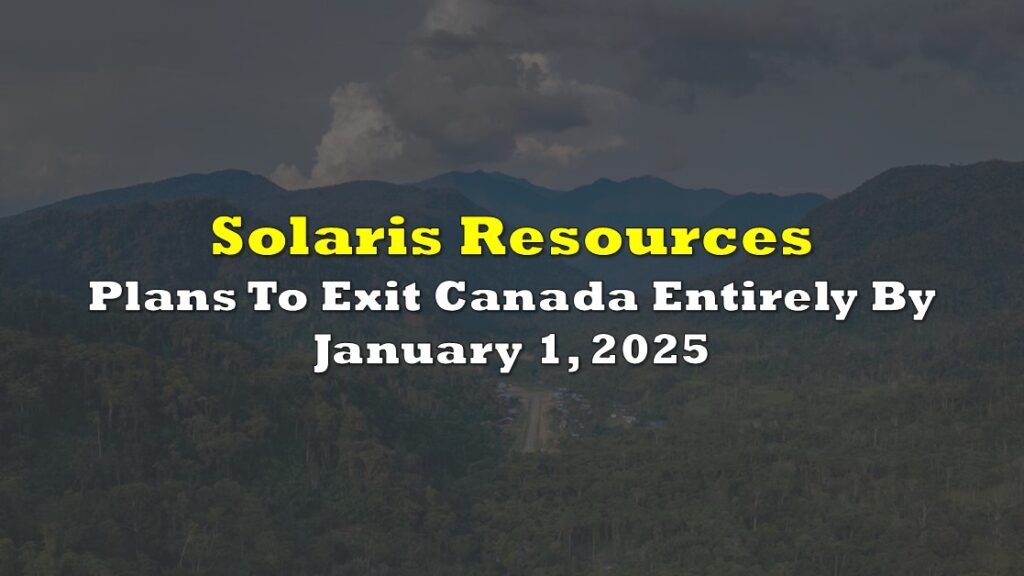The Canadian government has effectively blocked a minority equity investment in Solaris Resources Inc. (TSX: SLS) intended to support the expansion of the Warintza Project in Ecuador. This decision, motivated by concerns over critical minerals, has led Solaris to voluntarily terminate the previously announced investment.
Solaris Resources announced that the transaction, initially intended to support the Warintza Project, including the potential purchase of an adjacent asset, had not received the necessary Canadian regulatory approval after four months of review. The evolving regulatory environment in Canada, along with the significant appreciation of Solaris’ share price by over 35% since the announcement, rendered the transaction’s pricing inadequate.
The minority equity investment, valued at a 14% premium to Solaris’ share price at the time of announcement, was seen as a strategic move to leverage additional resources and expand Solaris’ operations in Ecuador. However, the delay and ultimate inability to secure regulatory approval led the company to reconsider the transaction, citing unfair terms to both the company and its shareholders in the current market context.
Solaris’ President and CEO, Daniel Earle, expressed frustration over the Canadian regulatory environment, suggesting that Canada’s critical minerals policy is counterproductive when applied to foreign assets.
“This transaction represented a minority equity investment from a well-known and respected, publicly-listed foreign company where the proceeds were intended to be used for the growth of a Canadian-controlled company’s principal asset in a foreign jurisdiction. That this transaction cannot be completed in a reasonable timeframe signals that Canada’s critical minerals policy is counterproductive in relation to foreign assets,” he said.
He further emphasized the company’s commitment to advancing the Warintza Project and maximizing shareholder value by 2026.
Warren Irwin, President & CIO of Rosseau Asset Management, criticized the Canadian government’s decision. He pointed out the inconsistency in blocking Chinese investments in foreign mining projects while continuing to import copper-containing products from China. Irwin warned that such policies could severely impact Canada’s mining industry, reducing incentives for funding exploration companies at a time when global demand for copper is increasing.
“I give credit to Dan Earle and the Ecuadorians for having done everything they could to try and change the outcome, including having the President of Ecuador meet with Trudeau… sadly to no avail,” he emphasized.
When I heard from my sources in February that the Canadian Government was not going to approve this, I took a ton of shit at the time for going public with the information. I give credit to Dan Earle and the Ecuadorians for having done everything they could to try and change the… https://t.co/bV6jKpUDmC
— Warren Irwin (@ItsWarrenIrwin) May 21, 2024
Despite the Canadian regulatory block, Solaris said it remains financially equipped to proceed with its 2024 and 2025 Warintza baseline programs, having secured an additional US$40 million through an offtake financing package announced in December 2023.
As the global demand for critical minerals like copper continues to rise, observers note that Canada’s approach may drive Canadian mining companies to seek opportunities and financing in other jurisdictions, potentially diminishing Canada’s influence and competitiveness in the global mining industry.
Solaris Resources remains optimistic about the future of the Warintza Project. The company expects to deliver an Environmental Impact Assessment in the second half of 2024 and a Pre-Feasibility Study in the second half of 2025.
This follows after the Shuar Arutam People (PSHA), an Ecuadorian indigenous nation, lodged a formal complaint against Solaris Resources with the British Columbia Securities Commission. The complaint alleges that Solaris has only partially disclosed its relationships with Indigenous communities opposed to the Warintza project and has neglected to regularly disclose political and legal risks in Ecuador that could hinder mining activities.
“The Shuar Arutam people have rejected the Warintza project for many years. Despite this, the company insists on promoting the project by dividing the communities and trying to reach agreements with other Indigenous organizations,” Jaime Palomino, President of PSHA, explained, asserting that the indigenous nation is “unaware of and reject any agreement that is or has been signed on [its] behalf.”
Information for this briefing was found via the sources mentioned. The author has no securities or affiliations related to this organization. Not a recommendation to buy or sell. Always do additional research and consult a professional before purchasing a security. The author holds no licenses.









